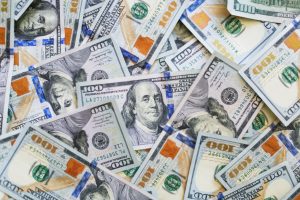A wide range of “usual suspects” popped up on the news reels as the International Consortium of Investigative Journalists (ICIJ) and BuzzFeed News unveiled the collated data of the so-called FinCEN Files, which showed how U.S. banks served as intermediaries for thousands of suspicious international transactions over an 18-year period. Inevitably, Kazakhstan’s former oligarchs were part of the scandal.
In 1990, the U.S. Treasury Department created an agency, the Financial Crimes Enforcement Network (FinCEN), in an effort to combat domestic and international money laundering, as the U.S. banking system had become the main catalyst of global financial transactions.
The documents leaked to investigative journalists show that while the FinCEN collected millions of suspicious activity reports (SARs) — in which banks or brokers flagged transactions potentially liable for money laundering, terrorist financing, or other financial crimes — the agency had no power to stop the transactions.
A BuzzFeed summary of the findings, for example, highlights the role played by Bank of America, Citibank, JPMorgan Chase, American Express, and others in processing “millions of dollars in transactions for the family of Viktor Khrapunov […] even after Interpol issued a Red Notice for his arrest.” Once close to Kazakhstan’s former ruler Nursultan Nazarbayev, Viktor Khrapunov served as the mayor of Almaty. After falling out with Nazarbayev and allegedly defrauding the city through opaque public tenders, Khrapunov fled to Switzerland.
Another summary, by ICIJ, shows the details of the suspected illicit money flows. While the Khrapunovs said in a statement that the charges against them are politically motivated, they did not deny the flows of money through their accounts.
The suspicious $89 million that passed through Khrapunov’s hands, however, pales in comparison to the $666 million attached to the name of Mukhtar Ablyazov that was flagged with SARs. A former banker, Ablyazov too fell out with Nazarbayev in the early 2000s and went on to become a major political opposition figure. He was at the center of several scandals, which included embezzlement in Kazakhstan, money laundering in the U.S., contempt of court in the U.K., extraordinary rendition from Italy, and a prison sentence in France.
In 2018, a the U.K. High Court fined Viktor Khrapunov’s son Iliyas $500 million for allegedly helping Ablyazov as he embezzled funds from BTA Bank, the once-powerful financial institution that he owned. Iliyas Khrapunov is also Ablyazov’s son-in-law.
Inevitably, Ablyazov and the Khrapunovs were not the only figures from Kazakhstan to have moved suspicious cash with the help of U.S. based banks. The FinCEN Files, however, have not yet disclosed other names, despite rumors in the local press that the country’s richest could be involved.
ICIJ did not respond to a request from The Diplomat regarding other Kazakhs potentially exposed in the files.
Similarly to the proportions across jurisdictions, most transactions to or from Kazakhstan were processed through The Bank of New York Mellon, the giant financial institution also in charge of the custody of the country’s national fund, which is still threatened by a long-lasting lawsuit.
Among the protagonists of the FinCEN Files, Deutsche Bank figures as an ironic character, since it had already emerged as a catalyst of money laundering transactions in past scandals. The FinCEN Files highlighted that the bank knew of the potential risks associated with the money it processed, but failed to stop the flow. And so did other financial institutions.
Between 1999 and 2017, around $2 trillion was flagged in SARs leaked in the FinCEN Files. As BuzzFeed put it, “Western banks could have blocked almost any of them, but in most cases they kept the money moving and kept collecting their fees.”
As argued elsewhere, “in order to satisfy demand for corruption, tax havens and cash shelters, Central Asians elites need the West to supply them with the tools for circumventing laws and public scrutiny.” Thanks to the FinCEN Files, we now know that these Western institutions were fully aware that dirty money from across the globe was moving through their channels.

































